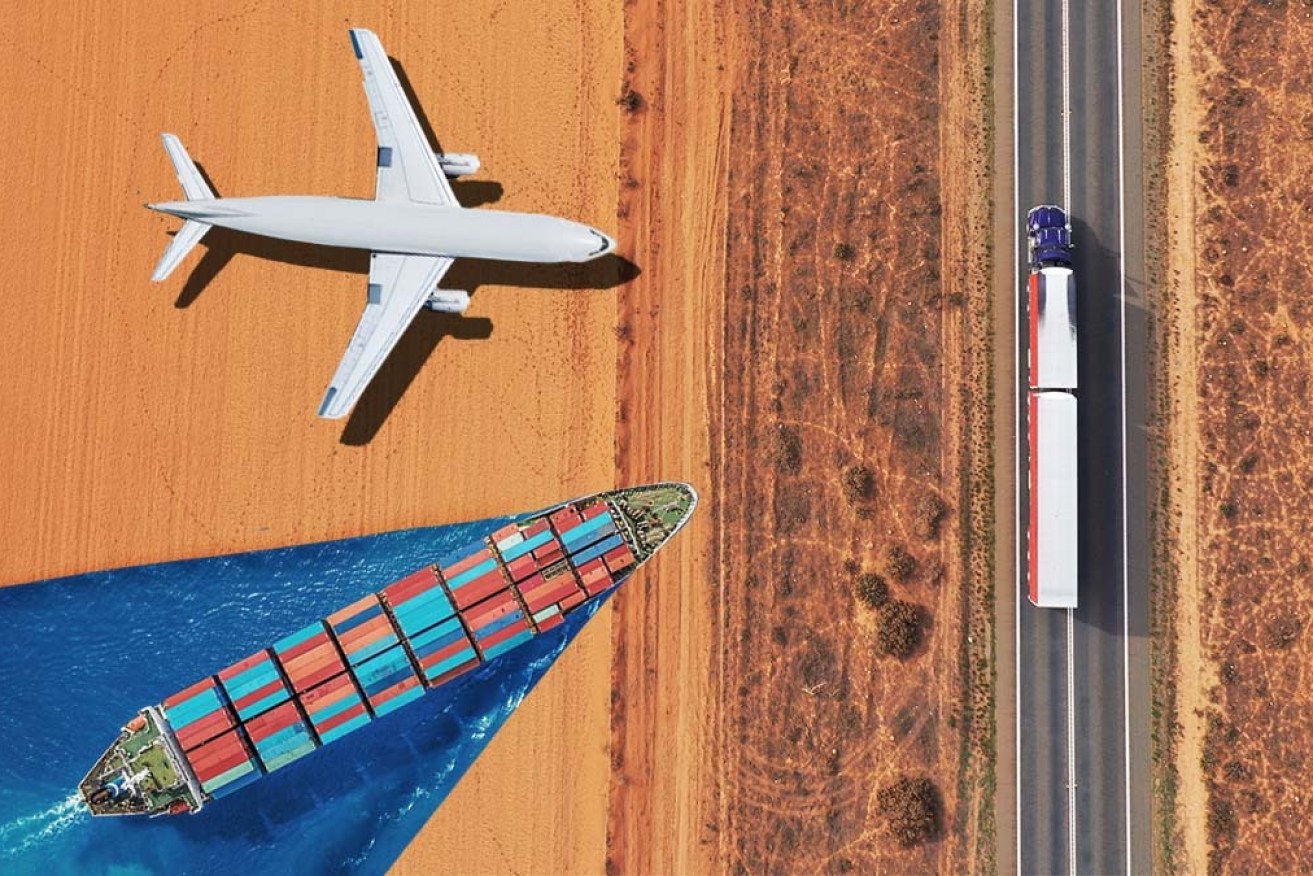‘We’ll spend whatever it takes’: Australia scrambles to fill AdBlue shortage


Ships are in the water and planes are on standby to deliver a critical ingredient to the trucking industry. Photo: TND
Australia is running out of time to secure supplies of a crucial exhaust fluid needed for truckers to transport essential goods to supermarkets.
Trucking companies have warned they only have enough supplies of AdBlue to last until February and will be unable to operate their fleets without it – forcing the Australian government to go cap in hand to Saudi Arabia, the United Arab Emirates, Qatar and Japan.
AdBlue is injected into the exhaust systems of modern diesel vehicles and is a legal requirement for trucks in Australia as it helps to reduce emissions.
But Australia faces a major shortage of urea – a key ingredient of AdBlue – partly because its main supplier China has banned the export of the product in an attempt to drive down domestic fertiliser prices.
The Australian government and fuel industry are therefore scrambling to secure enough supplies to keep supermarket shelves stocked with essential supplies.
The federal government struck a deal this week to bring in 5000 tonnes of AdBlue from Indonesia, but trucking companies said it would only give them an extra few weeks and the industry wasn’t out of the woods yet.
Australian Trucking Association chair David Smith said the government also hasn’t announced how the Indonesian shipment of AdBlue will be divvied up – with industry leaders now weighing up whether it is worth establishing a stable but expensive domestic supply of urea to avoid supply issues in the future.
Keeping trucks on the road
Simon Henry, chief executive of DGL Group, the parent company of Australian AdBlue manufacturer AUSblue, said the company has sufficient stock in the country and en route via water to supply their current customers.
But he said AUSblue has charter planes on standby to fly in urea in case
they face pressure to supply more AdBlue if other local producers run out.
“Should it come to pass that we do look like we’re running out [of stock], we will just spend whatever it takes to fly material into Australia,” Mr Henry said.
“[Without urea], trucks will stop … you can’t bypass the [exhaust] system.”
Mr Henry said AUSblue’s biggest suppliers of urea are Japanese manufacturers, whose plants are currently under maintenance.
He said the worldwide shortage of urea comes down to a combination of several urea producers undergoing maintenance, China shutting down plants to clean up the air for the upcoming Winter Olympics, and severe shipping congestion.
Even when urea production gets back on track, he said access to the chemical still won’t come easy.
“Lots of countries now … are very low on stock … so what material does come out of these plants is going to be in high demand,” Mr Henry said.
On December 9, the Australian government announced the establishment of an AdBlue Taskforce to develop solutions to potential future supply constraints.
A spokesperson for Minister for Industry, Energy and Emissions Reduction Angus Taylor said the government is approaching “key overseas markets” to secure stocks of refined urea.
“Ministers have spoken with a number of international counterparts, and our diplomatic network is engaging with suppliers of refined urea in a number of countries, and are connecting Australian AdBlue manufacturers with these suppliers,” the spokesperson said.
“The government is already in discussions with a domestic urea manufacturer on options to expand local supply.”
Closer to home
Mr Smith said he hoped the current supply issues facing AdBlue-quality urea will promote local production of the chemical to avoid history repeating itself.
Until now, China has been the main supplier of urea to Australia.
But Road Freight NSW CEO Simon O’Hara said companies should prepare to pay more for locally produced urea if they don’t want to be subject to the whims of other countries.
“If things go back to normal with China … [the Chinese product] will be cheaper than a locally produced one,” Mr O’Hara said.
“It just depends, are you prepared to pay more on the basis that you know you’re going to get supply?
“Or are you wanting to risk it with the imports?”
Mr Henry said Australia would also face similar issues to the current shortage if it relies too much on domestic production.
“If you become too dependent on one plant in Australia, [and] there’s an issue with that plant, you’re going to be left high and dry,” he said.
‘Just in time’
Mr Henry said Australia needs to consider upping stockpile levels of urea in the future.
“For the past 30 or 40 years, we’ve become accustomed to this ‘just in time’ stock management philosophy – that’s broken now,” Mr Henry said.
“I think that fuel companies in future will be asking their AdBlue formulators to maintain higher stock levels, and that will fix the problem.”
Whatever the solution, Mr O’Hara says it needs to be found soon, as previous estimates of current Australian AdBlue stocks lasting until February may have been too optimistic.
“I would suggest that the manufacturers need to work with government to be able to solve this issue as quickly as possible,” he said.








